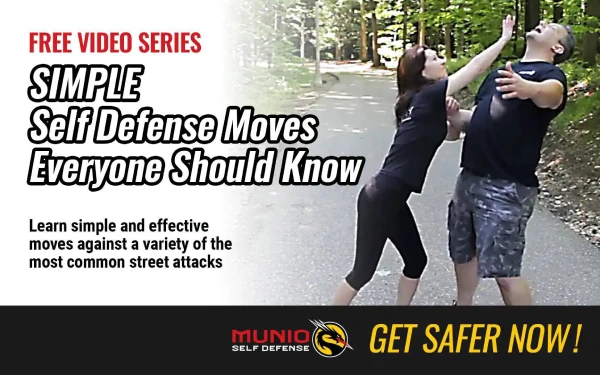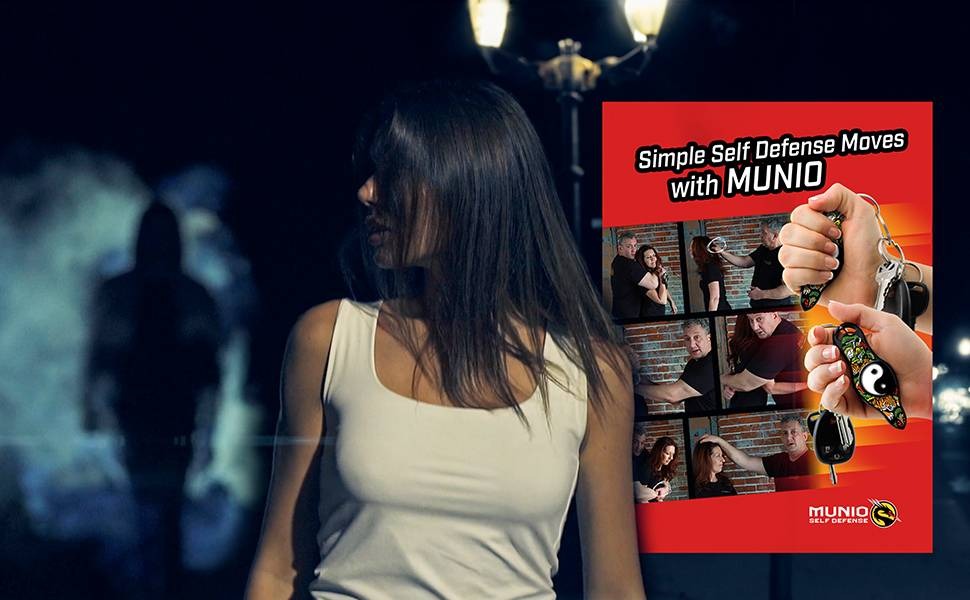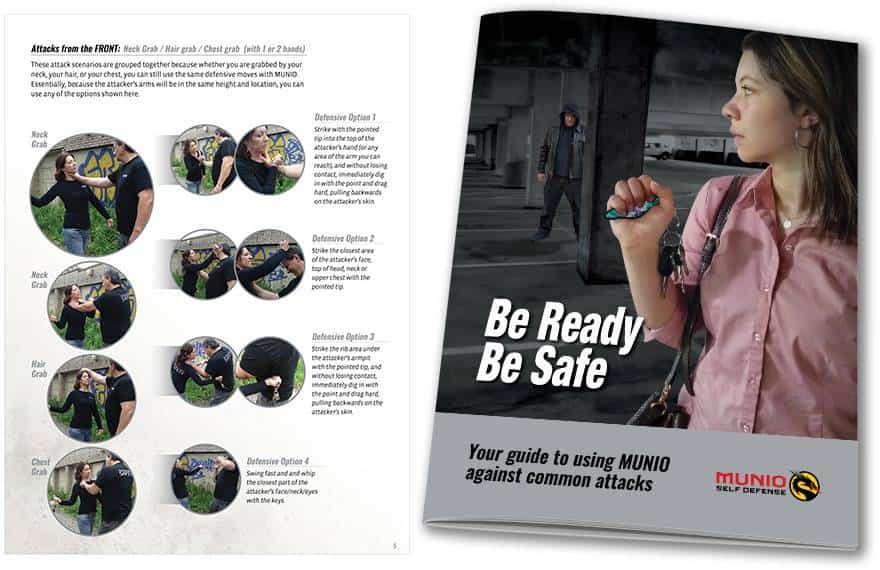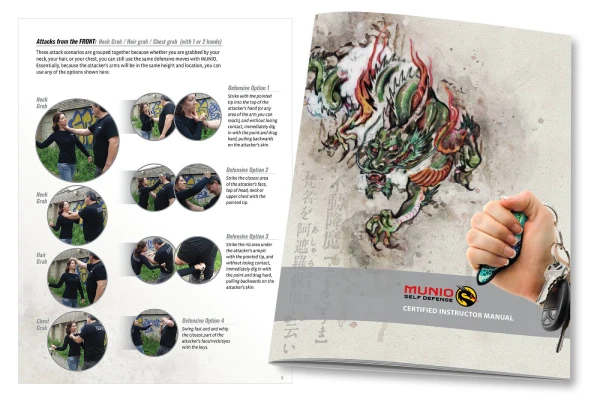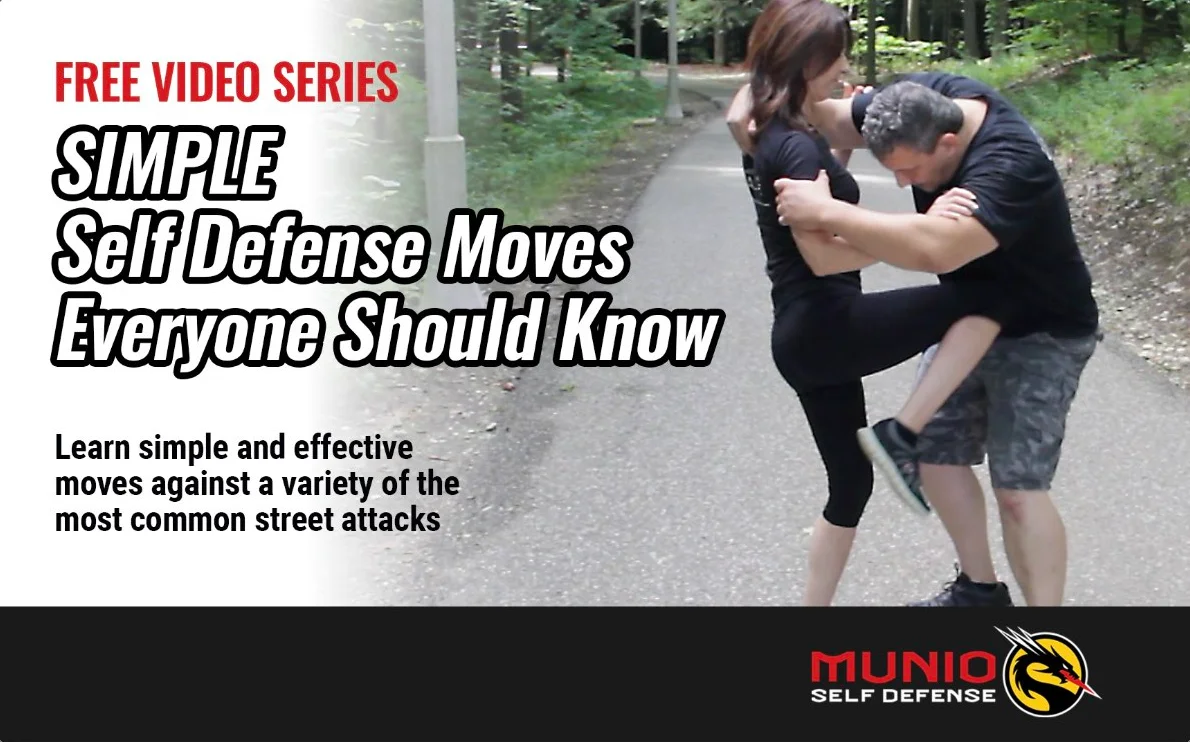Thankfully, most people will never know what it’s like to fight for their life. But if you or someone you love has ever experienced an assault, home invasion, or other terrifying incident, you already know that the moment of attack is not when you want to be thinking about self-defense options for the very first time.
That’s where self-defense keychains come in. Successful self-defense is all about planning and preparation. If you invest in the right tool, you’ve already taken a big step toward ensuring your personal safety.
The best self-defense keychains don’t require a lot of training, and they can only be enhanced by it. These weapons go by tons of names, both branded (like Kubotan or MUNIO) and generic (like kubatons).
Keep reading to learn the pros and cons of the different types of self-defense keychains out there, so you can make sure you invest in the right one for your needs.

Kubaton Keychain

Also known as a kubaton in its genericized version, the Kubotan is a name-brand self-defense keychain that originated in the 1960s. Learn more about the Kubotan.
Pros
- Effective against a variety of attacks, from both in front and behind
- Can be used as a flail for striking at an extended range by whipping your keys
- Can be used in joint lock and pressure point submissions (by those who are trained properly)
- Safer around small children (depending on the design) compared to other leading self-defense tools
- Generally considered non-lethal
Cons
- As it was originally designed for use by law enforcement, training is often necessary to use the Kubotan to its fullest potential
- Not legal in all states
- May not be allowed in all public settings, such as sporting arenas or airplanes
Resin Self-Defense Keychain
Resin keychains are impact weapons made out of resin material oftentimes by DIY-ers.

Pros
- Can be effective against a variety of attacks, depending on the mold used, quality of resin, skill of the maker, and shape
- Can be personalized, customized, and made more aesthetically pleasing or unique
Cons
- The edges may be sharp and therefore less convenient for everyday carry and less comfortable to hold, making it hard to handle or even unsafe if you actually need to use it
- Questionable durability and longevity due to the weaker resin material
- May not be allowed in public venues or legal in all states (depending on the shape and how it’s carried or used)
Pocket Knife Keychain

Pros
- An exposed blade can scare off or stop an attacker
- A blade may have versatile uses, such as cutting off a car seat-belt in an emergency
Cons
- Generally, you need two hands to open it unless there’s a release mechanism
- If there’s a release mechanism, there’s the possibility of mechanical failure
- Depending on the size and shape, you may have limited range or less effectiveness against attacks from behind, such as the common bear hug
- Due to its small size, you may not get good leverage with it on your keychain
- May not be allowed in public venues like concerts, sporting events, etc.
As far as I see it, you’re better off buying a regular knife that has a better grip and a longer, more durable blade, which will make the knife more effective. Just be aware of the legal repercussions of carrying a lethal weapon.
Cat Self-Defense Keychain

The cat self-defense keychain is also known as the kitty cat self-defense keychain. Other similar items have different animals (like the dog version pictured here) or unique shapes as a primary part of its appeal — but consider if this is the most important aspect for you. If so, if there are other ways to satisfy your aesthetic taste without compromising your safety.
Pros
- An effective tool for striking
- Looks like a mean and nasty weapon, which can potentially scare off attackers
Cons
- Impractical to use against the common bearhug attack from behind
- Might be forbidden from public spaces like airplanes, concerts, sporting events, etc.
- Illegal in several U.S. states, since its is gripped and used like brass knuckles
- Can be difficult for larger hands to insert your fingers and hold comfortably
Personal Alarm Keychain


The main thing to know about a personal alarm keychain is that it’s supposed to scare the attacker away using noise. If that doesn’t work, you’ll still need to protect yourself.
Pros
- The alarm sound might scare your attacker away
- The alarm sound might attract attention and summon help
Cons
- In some cases, the alarm sound is mistaken for a car alarm and people will not understand that you’re in immediate harm or that they should go for help
- People may understand that you’re in trouble, but they may be too afraid or not inclined to help (unfortunately, many people are more likely to record an attack on their phone instead of jump in to help)
- What if no one is around at all to hear the alarm go off?
- Most personal alarm keychains require two hands to activate (top left image), because you have to pull out the top with one hand, while holding onto the bottom with your other hand. But, because an attack might limit your mobility, it’s best to look for those that are activated by pressing a single button with one hand (top right image)
- This type of self-defense keychain is subject to mechanical failure
- You have to make sure to keep the batteries charged
Self-Defense Keychain with Pepper Spray

It’s important to note that pepper spray, bear spray, and mace are not all the same substance and will be subject to different legal restrictions in different states.
Pros
- Can effectively deter an attacker if applied right
Cons
- Subject to environmental conditions (wind, rain, etc.)
- Has a limited shelf life
- Difficult to use against an attack from behind
- Subject to mechanical failure
- May not be allowed in public spaces, on airplanes, or among crowds
- Not safe around small children
Stun Gun Keychain
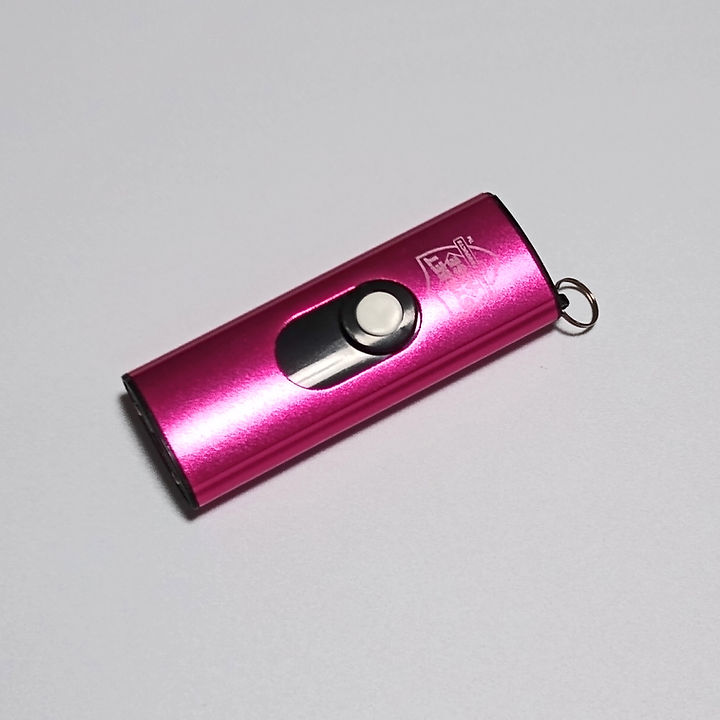
Stun gun keychains are often called “taser keychains” — but they’re not the same thing at all. Tasers are gun-shaped weapons that shoot out a wire that attaches to your attacker with sharp prongs and delivers a shock via the wire. I’ve never seen one on a keychain, but if you do, send me a link!
Pros
- Can effectively disable or deter an attacker
Cons
- Offers very little versatility: You must be able to press the prongs against your attacker and hold them there long enough to deliver enough electrical charge to incapacitate them
- May not be effective against attacks from behind
- Must always be fully charged
- Subject to mechanical failure
- May not be legal everywhere in the U.S.
- May not be allowed at public gatherings or on planes
- Not safe around small children
MUNIIO Keychain

You didn’t expect me to leave our own self-defense keychain off this list, did you? But in all seriousness, I firmly believe this is the safest, easiest-to-use, and most reliable self-defense keychain you can possibly get.
Pros
- No special training is absolutely necessary to use this self-defense weapon, since using it is simple and natural. Of course, some basic training tips will help enhance your natural abilities. If you happen to have martial arts training, you will be able to use it in even more complex ways.
- As one of the most versatile self-defense keychains, it can be used effectively even against attacks from behind
- Can be used for everyday carry (EDC): It’s legal in all states and can be carried onto airplanes
- Stylish and chic with many design options, and, since it doesn’t look like a weapon, is more likely to be carried regularly by users
Cons
- MUNIO is not used for long range defense. MUNIO can be swung as a long range deterrent, but its intended, and most effective range is close quarters to slightly beyond your arms reach. Keep in mind, criminal attacks most often surprise you up close in your face, or even from behind you… not 10 to 20 feet away.
Learn more about how the MUNIO Self-Defense Keychain compares to other leading self-defense weapons.
Important Points to Consider Before Purchasing a Self-Defense Keychain
As you search for the best self-defense keychain for your needs, consider the following:
- Whatever self-defense tool you choose to use, think about what I think is the worst-case attack scenario — a surprise attack from behind that you don’t see coming.
- No matter what the attack, since your life could be at stake, whatever you have better be effective, you better know how to use it, and it better be in your hand so you can use it immediately.
- Many attacks occur at close range or from behind — so whatever EDC tool you carry should be effective up-close in that really uncomfortable predatory range.
- Realistically, the time to use your self-defense tool is when the attack is happening, not when someone is 10 to 20 feet away. Criminals are cowards and they want to catch you off-guard — by asking for spare change, a cigarette, or the time, for example. You likely won’t be able to understand you’ve been targeted until your assailant has already made their attack.
- A self-defense keychain can only be effective if it’s there to begin with. If you leave it at home, or in your glovebox, because you weren’t permitted to take it with you to the nighttime event you were attending, or because you don’t feel comfortable with its menacing appearance or its awkward shape, then what’s the point of having it? You never know when an attack might occur.
Questions to Ask When Shopping for a Self-Defense Keychain
With these points above in mind, here are some questions to ask as you shop around:
- Is it legal?
- Is it lethal?
- Can it work in every environment and in any weather (wind, rain, etc.)?
- Can you take it with you wherever you need it?
- Is there any accidental personal risk of using it?
- Is it safe around small children?
What Should You Look For in a Self-Defense Keychain?
Here’s what you need to look for in any of the best self-defense keychains:
- Portability and convenience for EDC
- Practical Range of Use
- Versatility (can it be used to defend against attacks from behind)
- Ergonomics/comfort
- Longevity/shelf life
- Consistency/reliability/functionality
- Accessibility/usability
- Legality
Are Self-Defense Keychains Legal?
This really varies by type, but it’s an essential question to ask. After all, you want to be sure you can take your keychain with you everywhere you go — period. The only self-defense keychain that I know of that isn’t barred from any public gatherings, can be taken onto airplanes, and is legal in all 50 states, is MUNIO.
The Best Self-Defense Keychain for You
I like to think about self-defense as the only real form of life insurance. Because those papers you sign, and the money you spend, which is traditionally called “life insurance”… that’s really death insurance. Think about it: Someone only gets your payout when you die. With self-defense, your payout comes when you protect your life… and survive.
At the end of the day, the best self-defense keychain is the best one for you because you’ll be more likely to carry it and feel more comfortable using it. I hope the tips above will help you in your search for the perfect EDC tool for your needs.





